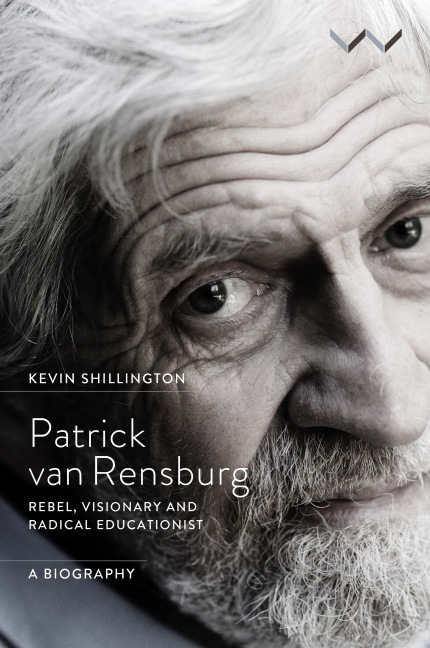Book contents
- Frontmatter
- Dedication
- Contents
- Acknowledgements
- Abbreviations and Acronyms
- List of Illustrations
- Maps
- Introduction
- 1 Origins and Identity in South Africa
- 2 An Anglophone South African, 1936–1948
- 3 The Making of an Afrikaner, 1949–1953
- 4 Diplomat and Rebel, 1953–1957
- 5 Anti-Apartheid Activist, 1957–1959
- 6 Boycott, 1959–1960
- 7 Into Exile, 1960–1961
- 8 Return to Africa, 1961–1962
- 9 The Founding of Swaneng Hill School, 1962–1963
- 10 Challenging ‘The Ladder to Privilege’, 1963–1965
- 11 The Alternative Educationist, 1965–1967
- 12 Expansion and Replication, 1967–1969
- 13 Time of Crisis, 1969–1971
- 14 Education with Production, the 1970s
- 15 Foundation for Education with Production and Spreading the Word, the 1980s
- 16 Education with Production and South Africa, the 1990s
- 17 Return to Botswana
- Epilogue
- Notes
- Bibliography
- Index
10 - Challenging ‘The Ladder to Privilege’, 1963–1965
Published online by Cambridge University Press: 10 September 2020
- Frontmatter
- Dedication
- Contents
- Acknowledgements
- Abbreviations and Acronyms
- List of Illustrations
- Maps
- Introduction
- 1 Origins and Identity in South Africa
- 2 An Anglophone South African, 1936–1948
- 3 The Making of an Afrikaner, 1949–1953
- 4 Diplomat and Rebel, 1953–1957
- 5 Anti-Apartheid Activist, 1957–1959
- 6 Boycott, 1959–1960
- 7 Into Exile, 1960–1961
- 8 Return to Africa, 1961–1962
- 9 The Founding of Swaneng Hill School, 1962–1963
- 10 Challenging ‘The Ladder to Privilege’, 1963–1965
- 11 The Alternative Educationist, 1965–1967
- 12 Expansion and Replication, 1967–1969
- 13 Time of Crisis, 1969–1971
- 14 Education with Production, the 1970s
- 15 Foundation for Education with Production and Spreading the Word, the 1980s
- 16 Education with Production and South Africa, the 1990s
- 17 Return to Botswana
- Epilogue
- Notes
- Bibliography
- Index
Summary
Accurate figures are hard to come by, but, in the early 1960s, it seems that of the two-thirds of school-age children who entered primary school in Bechuanaland more than half dropped out along the way, for a whole variety of reasons, and those who remained faced a competitive examination which barred the vast majority from secondary education. Only a small minority gained admission to one of the country's six secondary schools and these, in turn, would be further weeded out by the Junior Certificate (JC) examination at the end of their third year.
In 1963 there were only three secondary schools in the country that took students up to Form Five and the Cambridge Overseas School Certificate (‘O’ level). Although that number would increase in the next few years, the whole system, as Patrick perceived it, was directed towards the creation of an élite, who, like the colonial administration itself, would care little about the fortunes of those they left behind.
In a direct challenge to the system – the first of many to come – Patrick had offered places on a first-come-first-served basis. And for this first year he restricted the intake to one class of twenty-eight, among whom were two unmarried mothers. The Swaneng governing committee and several of Serowe's elders were opposed to the admission of these girls but, in his own words, Patrick ‘took a strong stand against their position, on the grounds that these girls needed education even more than others, to be forearmed against impregnation in future and to be able better to care for their children’. The target intake of twenty-eight students, several of them of South African origin, was quickly signed up.
Patrick held his first assembly, outdoors, in the manner that he was determined to continue, with two minutes’ silence for personal reflection rather than the customary religious prayer or hymn. He then took the students into his confidence, explaining the financial constraints the school was under and that it would only survive with the willing cooperation and hard work of everyone – students and staff.
They would begin with the students electing a head boy and head girl and, fulfilling the dream he had had at Glenwood High, he asked them to elect three additional students who would serve with them on a school council. The council would be advisory, but he promised to take its advice seriously.
- Type
- Chapter
- Information
- Patrick van RensburgRebel, Visionary and Radical Educationist, a Biography, pp. 141 - 160Publisher: Wits University PressPrint publication year: 2020

